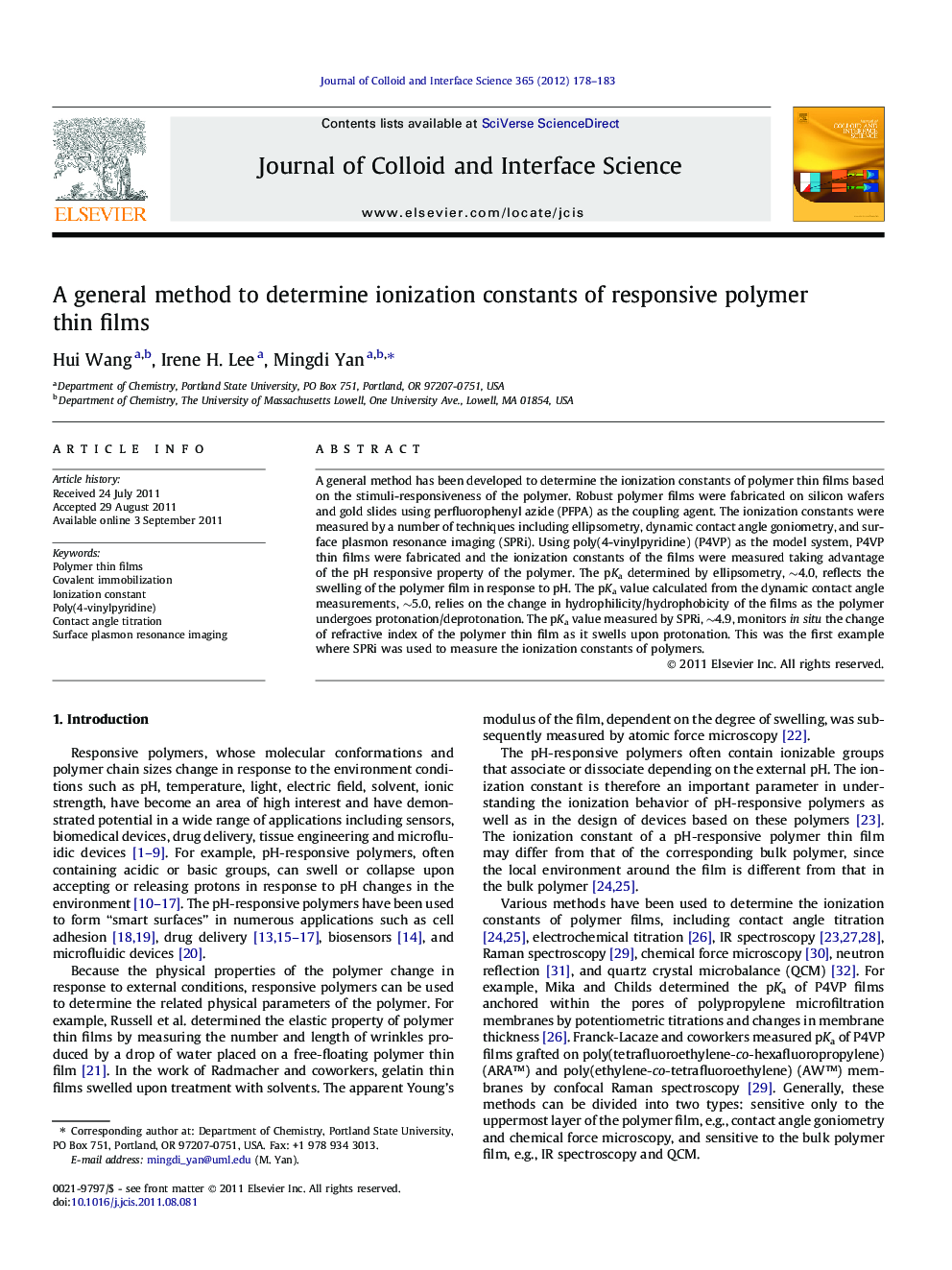| Article ID | Journal | Published Year | Pages | File Type |
|---|---|---|---|---|
| 608466 | Journal of Colloid and Interface Science | 2012 | 6 Pages |
A general method has been developed to determine the ionization constants of polymer thin films based on the stimuli-responsiveness of the polymer. Robust polymer films were fabricated on silicon wafers and gold slides using perfluorophenyl azide (PFPA) as the coupling agent. The ionization constants were measured by a number of techniques including ellipsometry, dynamic contact angle goniometry, and surface plasmon resonance imaging (SPRi). Using poly(4-vinylpyridine) (P4VP) as the model system, P4VP thin films were fabricated and the ionization constants of the films were measured taking advantage of the pH responsive property of the polymer. The pKa determined by ellipsometry, ∼4.0, reflects the swelling of the polymer film in response to pH. The pKa value calculated from the dynamic contact angle measurements, ∼5.0, relies on the change in hydrophilicity/hydrophobicity of the films as the polymer undergoes protonation/deprotonation. The pKa value measured by SPRi, ∼4.9, monitors in situ the change of refractive index of the polymer thin film as it swells upon protonation. This was the first example where SPRi was used to measure the ionization constants of polymers.
Graphical abstractA general method based on the stimuli-responsiveness of polymers has been developed to measure the ionization constants of polymer thin films using ellipsometry, dynamic contact angle titration, and surface plasmon resonance imaging.Figure optionsDownload full-size imageDownload high-quality image (68 K)Download as PowerPoint slideHighlights► A versatile approach to fabricate robust polymer thin films. ► A general method to measure ionization constants of polymer films. ► The pKa of P4VP films measured by ellipsometry, dynamic contact angle, and SPRi.
